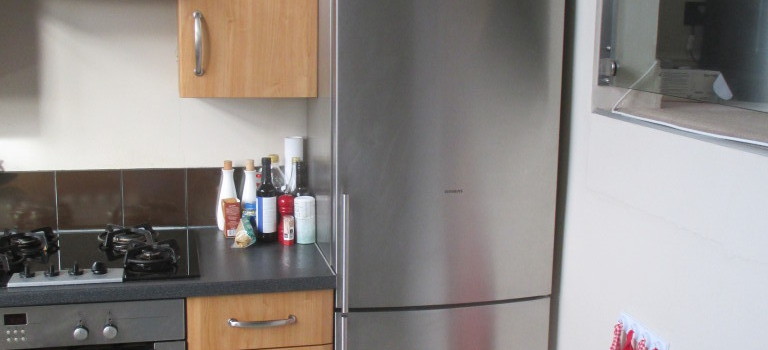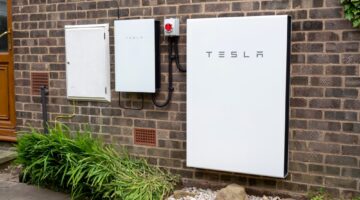
When it comes to energy efficiency, we appreciate how difficult it is to gauge when an appliance is worth replacing. Customers ask us on a daily basis whether they should replace old TVs, Microwaves and Freezers.
There is clearly now far more focus on energy efficient appliances, with manufactures making this a key USP to help drive consumer purchasing decisions, so much so it is now possible to have an A++ rated appliance.
While many appliances have a marginal impact on your overall energy bill, the Fridge Freezer is one of the only appliances in the home that is switched on 24/7 for a total of 8760 hours a year. It accounts for about 7% of the average household energy bill, so it is one of the most important appliances to consider upgrading to a more energy efficient model. However, it is important to know that you can also improve the efficiency of existing fridge freezers by following some of the simple tips below.
How can I increase the efficiency of my existing fridge-freezer?
- Placing your Fridge-freezer away from direct sunlight ensures that it does the minimal work possible and therefore uses less electricity while producing the same temperature.
- Keeping the Fridge-Freezer at least 10cm from the wall allows for the most efficient cycling of air, ensuring the maximum efficiency is reached.
- Setting the temperature for the fridge at 4°C and the freezer at -18°C helps maintain healthy food while not wasting energy on overcooling.
- Ensuring food has cooled sufficiently before placing it in the fridge-freezer takes helps ensure you are not wasting excessive energy on cooling it.
- One important energy efficiency tip is making sure that the fridge-freezer is as full as possible. Storing bottles of water in the fridge and newspaper in the freezer reduces the volume of air than needs to be re-cooled each time the fridge-freezer is opened and closed.
- Finally, in order to stop any unwanted heat from entering the fridge-freezer space, make sure that seals around the door are maintained and kept clean – this should ensure the seal holds, so no cold air escapes / warm air enters.
- If you have multiple fridge / freezers in your home – unless you need to store 4 year old joints of meat, try to reduce the volume you are storing so you can turn one of these off.
So you’ve tried all that and you still think you are wasting energy? Now might be the time to consider replacing the fridge freezer altogether. So what do you need to consider before purchasing your new appliance.
Is it worth the money buying a new fridge-freezer?
Determining the specific tipping point, where it becomes cheaper to replace your fridge-freezer with an energy efficient model, rather than keeping your old one up and running is not a straightforward calculation.
As a rule of thumb, if you have bought a new fridge freezer in the last ten years then, unless it is completely broken, don’t bother replacing it with a new model since the efficiency gains won’t be worth it.
If your fridge-freezer is more than 10 years old, then you should consider replacing it with a new model. A fridge-freezer over 20 years old for example, may cost as much as £160 per year to run. Compare this to a new A++ rating fridge-freezers, which would cost a mere £25 per year to run. That is a saving of £138 per year, which means that a highly rated fridge freezer such as the SAMSUNG RB31FEJNCSA would payback in just 4 and half years.
Remember though, that it doesn’t always make sense to buy the cheapest fridge-freezer available. If you bought a £200 B rated model, then the annual cost to run it might be £50, therefore simply by spending a little more (on an A++ model), you would save an additional £25 per year. Based on the fact a fridge-freezer should last 15 years or more, then you have the potential to save an additional £375 just over that time scale.
So should I just focus on Energy Efficiency rating?
Another important fact to consider when purchasing a new fridge-freezer is the size. The energy ratings are based on a cost per litre. This therefore means that buying a large A++ rated fridge-freezer may still be more expensive to run than a medium sized B rated one. Ensure you buy the optimum size, with the best efficiency rating you can afford.












The new technology has provided freezer with multiple doors so that when you open one portion of the fridge the other portions should not get affected by this and cooling remains sustained which ultimately helps of maintain the freshness of your foodstuff.
energy saving tip? If you live next door to a supermarket, yuo do not need a freezer. Built in freezer/fridge leave room for hot air to excape, hole leading to outside of house? Place fridge /freezer on bricks to ensure cooling air can reach back of fride/freezer when built in.EZER?
Disappointing for a website called the Green Age that this only covers the financial balance sheet and not the carbon one. E.g. carbon savings from running it v. carbon costs of making a new fridge freezer.